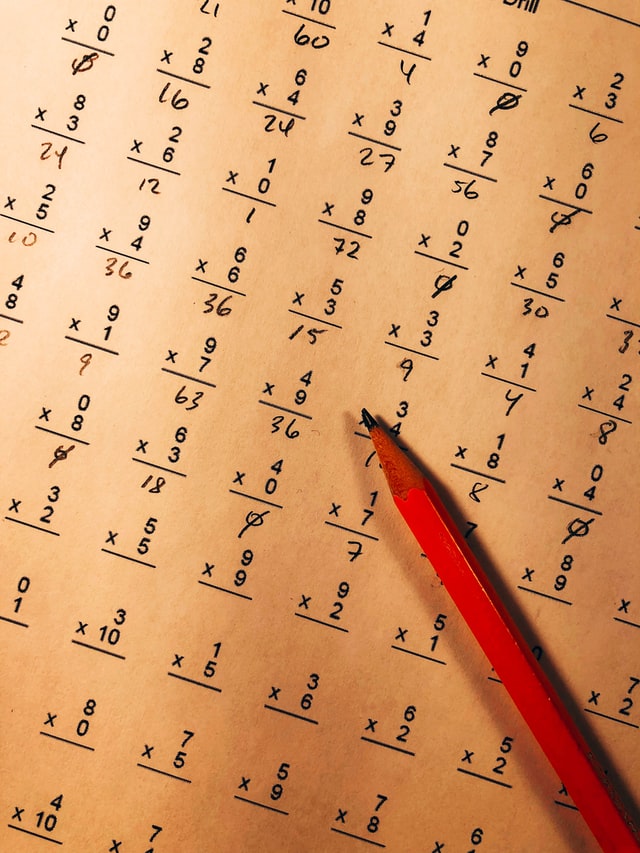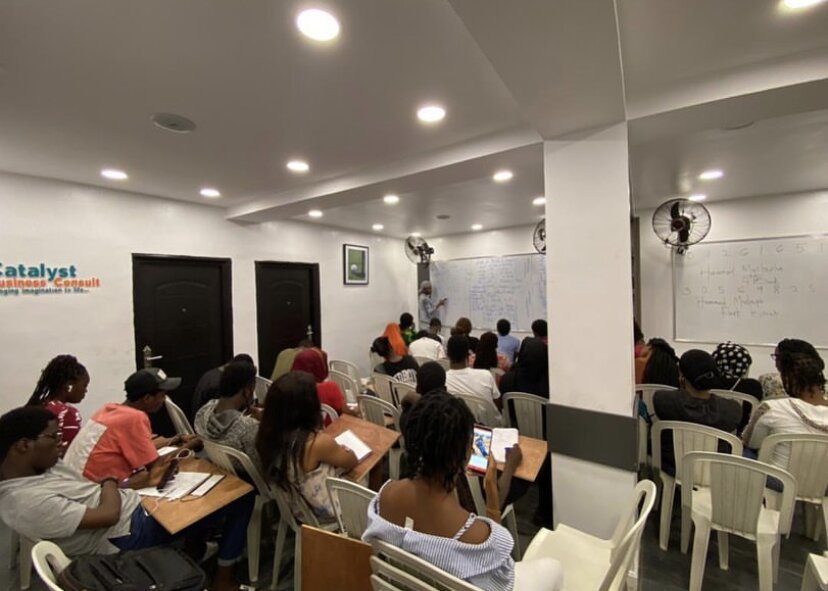Undergrads go on a “jacking” spree during the examination period, putting in all effort just to spank. However, things take a turn in the exam hall — there is a different atmosphere in it. Hands get sweaty, shaky, and memory wanes as anxiety becomes overwhelming. Here are some practical exam tips to have a better shot at those sky-high grades:

Five tips for you:
1. Organize your schedule
A schedule allocates time to study and involves drafting a timetable. Challenging courses may take more time to learn; give enough time to understand them.
Review the complexity and volume of each course. This would help you prepare adequately for each subject and stay off cramming or rush hour reading.
Also, take breaks when studying. This is because studying round the clock may trigger stress which affects concentration during exams. Take 5-10 mins break every hour. It refreshes your memory. At the same time, consider the time of the day that makes studying productive for you. If you are nocturnal, rest early before your study hours at night. If you enjoy reading in daylight, start early so you can enjoy lunchtime.
2. Take time to study
Your heart may race faster as the exam approaches. Remember to be calm and take time to study. Cramming may seem the most straightforward option during exams, but you don’t want to stare at the ceiling like a seer evoking divine knowledge from a magic globe. Notes and recommended texts should be thoroughly read.
Revisit all assignments and compare solutions amongst your course-mates. Some students enjoy group study; it is an excellent way to learn new ideas and improve understanding. Break down topics and chapters into smaller sections that aid assimilation and take notes of critical concepts. Also, create a fluid timetable. A mix of courses makes reading fun. You can drop tough subjects in the meantime and read up on more intriguing topics.
3. Eat healthy food
Energy drinks, carbonated drinks, and caffeine are firepower for students. They give a quick energy boost followed by a drastic drop in blood sugar. However, you should avoid abusing them. Here are some expert-recommended healthy foods to stay in top shape ahead of your exams:
- Berries contain anthocyanins which increase blood circulation to the brain. It protects you against inflammation and promotes a longer attention span.
- Avocados are packed with lutein, a carotenoid linked to improved brain function. Enjoy them plainly with a bit of salt or make them into a spread for bread.
- Oily fish like sardines and mackerels are essential sources of omega 3 vital for better performance. Combine them with whole-wheat bread, and you get a rich diet of carbs and protein.
- Eggs, boiled or fried, are rich in vitamin B12 which improves neurological function. They also contain choline and selenium, which will enhance memory, motor performance, and brain development.
- Nuts are excellent sources of protein, fiber, and vitamin E. Nimble on walnuts or groundnuts for more brainpower.
4. Practice past exams
Practicing past exams helps you understand the structure of the exams and the format of the questions. For example, multi-choice questions (MCQ) require rapt attention. To prepare for MCQs, write a list of relevant information like names, dates, and formulas. Flashcards are handy. You can easily pick them up and revise critical points. Use acronyms when studying to help you recall information easily.
Explain what you’ve read to a friend or roomie in simple terms. Any concept you can’t break down easily should be reviewed. Do this till your explanations are clear and can be grasped by a 4-year-old. While reviewing past questions is helpful, don’t binge on it. Don’t substitute them for notes, textbooks, or other materials that need to be read. Remember, they are for understanding the format of an exam and should come after studying.
5. Prepare for each exam day
It is time to get to the exam hall. Oops! You don’t know the venue, forgot your writing materials, and you are poorly hydrated. You feel frustrated, and anxiety sets in. Prepare for each exam. Know the exam venue and the duration for each paper. An exam timetable can help you with this. If you are going for a math exam, you may need a calculator, mathematical set, or a formula table.
Get the necessary materials for each exam beforehand, stay hydrated and be time cautious. Break down the exam duration and allot time to each section. A wristwatch can help you keep track of time. Leave any question that may seem complicated. Come back to it after you’ve tackled others. It saves time, prevents you from getting anxious, and gives you more chances to think.
FAQs
How do I register for an exam?
Visit the student portal to begin your registration. For freshmen, they may need to register at the faculty before commencing departmental course registration. Consult the student handbook to note all required, compulsory or elective courses. You should also consult your course advisor if you still find it challenging to select courses for registration or may want to add an elective.
What are the entry requirements for the exam?
Go to the exam with your student ID. Also, take your docket – this is a list of all registered examination courses for a particular level. It serves as proof of registration. Students should not go to the exam hall with any electronic device. Put away all notes or flashcards. Do not forget your necessary writing and calculation tools.
How can I locate the exam venue?
Faculties and departments release timetables before exams start. It contains a scheduled date, duration, and venue for each exam. If you copy a timetable from friends, crosscheck it with the official one. This will help validate the information you copied. Confirm venues and time again a few hours to your scheduled period.
Final notes from Catalyst Tutorials
Exams serve as a means of assessment, don’t be anxious about it. Be calm. Take a walk if you are stressed. Avoid loud noise and eat healthy food. Lastly, make good use of this exam tips. You’ve got this!

Catalyst Tutorials is a robust center with seasoned tutors and hundreds of admissions secured. Learning should be fun and engaging. Hence, we provide an interactive learning environment, use practical study guides and teaching styles. We help students with succinct study materials and a hands-on problem-solving approach.

